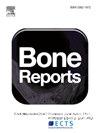Effects of endurance exercise and dietary protein intake on osteokine, bone turnover, and inflammatory markers in endurance runners: A narrative review
IF 2.6
Q3 ENDOCRINOLOGY & METABOLISM
引用次数: 0
Abstract
Bone stress injuries are pervasive among endurance runners due to repetitive sport-specific mechanical loading and a higher prevalence of low energy availability (i.e., inadequate dietary energy intake relative to exercise energy expenditure). Chronic endurance exercise promotes bone formation, thus, runners typically have higher bone mineral density (BMD) than non-weightbearing athletes and sedentary individuals. However, runners may experience increased bone resorption for hours to days following an endurance exercise bout. If recovery is insufficient, uncoupled bone turnover can pose a significant risk to their bone health. While skeletal-immune system crosstalk has been studied, the interaction during and after exercise in athletes is an emerging area of research. Nutritional interventions have been investigated for their effects on bone metabolism surrounding exercise. However, limited research has examined dietary protein intake in endurance athletes, particularly concerning its effects on bone metabolism and osteoimmunology. This narrative review provides an overview of the evidence on the effects of endurance exercise and dietary protein intake on osteokines, bone turnover, and inflammatory markers in endurance athletes. Acute bouts of high-intensity running increase osteokines and bone turnover markers that promote bone resoprtion which parallels increases in pro-inflammatory markers in endurance athletes, suggesting crosstalk between these systems during and after exercise. Chronic endurance exercise promotes increased resting levels of bone formation, while reducing resting pro-inflammatory markers. Adequate dietary protein ingestion habitually and pre-, during, and post-exercise may attenuate bone resportion and pro-inflammatory markers in endurance athletes.
耐力运动和膳食蛋白质摄入对耐力跑步者的骨因子、骨转换和炎症标志物的影响:一项叙述性综述
在耐力跑者中,由于重复性运动特定的机械负荷和更普遍的低能量可用性(即,相对于运动能量消耗,饮食能量摄入不足),骨应力损伤是普遍存在的。长期耐力运动促进骨形成,因此,跑步者通常比非负重运动员和久坐不动的人有更高的骨密度(BMD)。然而,跑步者在耐力运动后可能会经历数小时到数天的骨吸收增加。如果恢复不充分,不耦合的骨转换会对他们的骨骼健康构成重大风险。虽然骨骼-免疫系统的相互作用已经被研究过,但运动员运动期间和运动后的相互作用是一个新兴的研究领域。营养干预对运动前后骨代谢的影响已被研究。然而,关于耐力运动员膳食蛋白质摄入量的研究有限,特别是关于其对骨代谢和骨免疫学的影响。本文综述了耐力运动和膳食蛋白质摄入对耐力运动员的骨因子、骨转换和炎症标志物影响的证据。急性高强度跑步增加骨因子和骨转换标志物,促进骨再吸收,这与耐力运动员中促炎标志物的增加相似,表明运动期间和运动后这些系统之间存在相互作用。慢性耐力运动促进了静息期骨形成水平的提高,同时减少了静息期促炎标志物。习惯、运动前、运动中和运动后摄入充足的膳食蛋白质可能会减弱耐力运动员的骨反应和促炎标志物。
本文章由计算机程序翻译,如有差异,请以英文原文为准。
求助全文
约1分钟内获得全文
求助全文
来源期刊

Bone Reports
Medicine-Orthopedics and Sports Medicine
CiteScore
4.30
自引率
4.00%
发文量
444
审稿时长
57 days
期刊介绍:
Bone Reports is an interdisciplinary forum for the rapid publication of Original Research Articles and Case Reports across basic, translational and clinical aspects of bone and mineral metabolism. The journal publishes papers that are scientifically sound, with the peer review process focused principally on verifying sound methodologies, and correct data analysis and interpretation. We welcome studies either replicating or failing to replicate a previous study, and null findings. We fulfil a critical and current need to enhance research by publishing reproducibility studies and null findings.
 求助内容:
求助内容: 应助结果提醒方式:
应助结果提醒方式:


